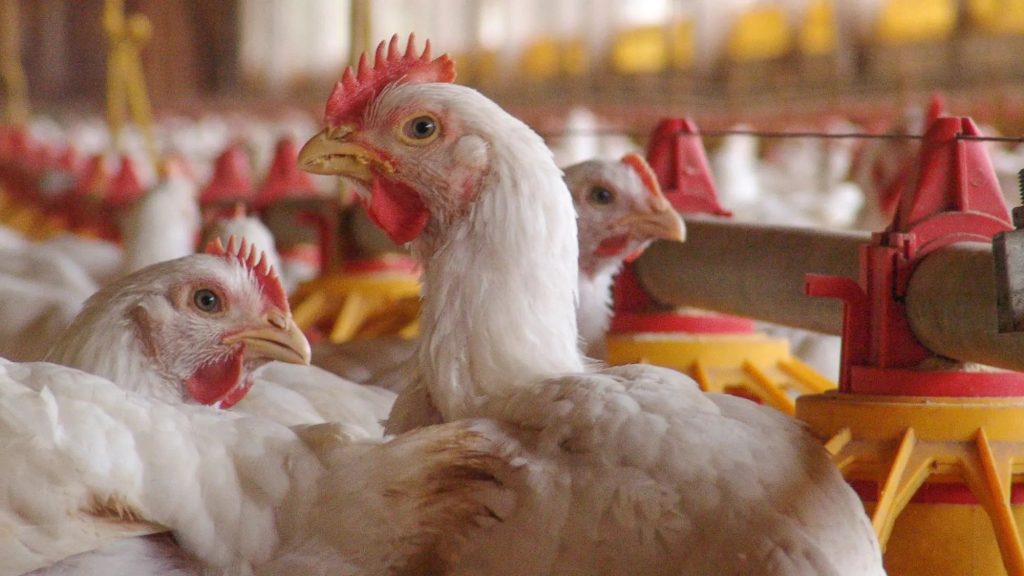Mineral deficiencies can occur in poultry production when an imbalanced diet is fed. Balancing poultry diets is a scientific process where a diet is fed according to the animal’s nutrient requirements during a specific phase of production. Minerals may only make up a small component of the diet, but are important during the various phases and/or stages of growth and development, particularly in production animals if they are to grow and produce to their optimum.
Poultry producers need to take careful consideration before adding products to a complete feed in an attempt to supplement performance. Adding products can cause an imbalance and hinder performance leading to poor production results.
Macro vs micro minerals
The term “essential mineral element” is defined as a mineral element that has been proven to have a metabolic role in the body. Some minerals are considered essential, which means that without these minerals being supplemented to diets, it will cause a deficiency in the animal. Minerals can be divided into macro and micro minerals. Macro minerals are needed in greater amounts than micro minerals (McDonald, P., 2011). Macro elements are important constituents of tissues in the body and have both structural and metabolic roles. Microminerals are present in much smaller quantities in the body and are involved in enzyme reactions and physiological regulations (Bao & Choct, 2009).
Breaking down essential minerals
A breakdown of macro and micro minerals and their essential functions are listed below:
Macro minerals:
- Calcium is the most abundant mineral element in the animal body. Calcium plays a vital role in the skeletal system (99% of calcium is found in the skeleton). It is also involved in muscle contractions and nerve impulses. Calcium is mainly added to poultry diets via limestone. When it is deficient/imbalanced, it can result in malformation of bones known as rickets in young birds, causing soft bones and poor growth.
- Phosphorus plays a role in skeletal development along with calcium but also occurs in phosphoproteins, nucleic acids and phospholipids. Phosphorus plays an important role in energy metabolism.
- Sodium works in conjunction with Chloride to maintain acid-base balance and osmotic pressure regulation. A deficiency in sodium in the diet leads to a decrease in osmotic pressure and therefore, dehydration. Sodium is found in higher concentrations in raw materials of animal origin than in vegetable sources but is normally added to diets via common table salt.
- Magnesium has a similar role to calcium in the body. It is also mainly found in the skeleton (70%) and contributes to bone growth and mineralization. The remainder is found in soft tissues and fluids. It is involved in enzyme activation and is responsible for carbohydrate and lipid metabolism. Magnesium requirements of birds are met when maize and soya-based diets are fed.
- Chloride also plays an important role in osmotic regulation and acid-base balance.
- Potassium along with sodium and chlorine, are involved in osmotic (water and electrolyte) balance. A deficiency results in slowed growth, weakness and also muscle cramps due to its involvement in muscle and nerve excitability.
- Sulphur for broilers is obtained from proteins containing the amino acids cysteine and methionine which are known as sulphur-containing amino acids. Sulphur is needed for the health and maintenance of cartilage, bone, tendons and blood vessels.
Micro minerals:
- Iron in animals occurs as haemoglobin which carries oxygen around the body. Therefore, a deficiency of iron leads to less haemoglobin production resulting in anaemia.
- Zinc occurs in over 200zinc-containing enzymes in the body and plays a role in healthy skin and feather development. It is also involved in DNA and RNA enzymes and the activity of a variety of hormones. Signs of zinc deficiency include; retarded growth and poor feathering.
- Copper has numerous functions in the bird’s body. This means that a deficiency results in health issues such as growth retardation, anaemia, infertility, gastrointestinal disorders, etc. A deficiency of copper also means the animal cannot absorb iron.
- Molybdenum plays an essential metabolic role as a component of enzymes. Particularly enzymes involved in converting products into uric acid to be excreted by the kidneys.
- Selenium is important in preventing cells from oxidative damage as a component of glutathione peroxidase. Selenium also works together with Vitamin E to maintain the health of lipid membranes.
- Iodine forms an important role in metabolism as it is involved in the synthesis of T3 and T4 hormones produced in the thyroid gland thus assisting growth and reproduction.
- Manganese, another mineral involved in the activation of enzymes, is found in the highest levels in the bones, liver and kidneys.
It is important to note the interactions that occur between minerals which include Calcium: Phosphorus, Copper-Molybdenum-Sulphur and Vitamin E-Selenium, among many others.
All about optimal performance
If a bird is not fed a balanced diet, it is necessary to supplement deficient minerals to ensure that the health of the broiler and its performance is optimised. It is best to ask a poultry nutritionist to formulate a customised ration for broilers, taking into consideration the environment, management conditions and specific performance objectives. Contact your nearest Meadow Feeds mill to find out how we can help.
References are available on request.



